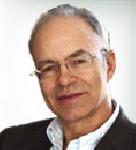 Project Syndicate
Project Syndicate - There is now a regular season for discussing drugs in sports, one that arrives every year with the Tour de France. This year, the overall leader, two other riders, and two teams were expelled or withdrew from the race as a result of failing, or missing, drug tests. The eventual winner, Alberto Contador, is himself alleged to have had a positive test result last year. So many leading cyclists have tested positive for drugs, or have admitted, from the safety of retirement, that they used them, that one can plausibly doubt that it is possible to be competitive in this event otherwise.
In the United States, the debate has been fueled by the baseball player Barry Bonds’ march towards the all-time record for home runs in a career. Bonds is widely believed to have been helped by drugs and synthetic hormones. He is frequently booed and mocked by fans, and many thought that baseball’s commissioner, Bud Selig, should not attend games at which Bonds might tie or break the record.
At the elite level, the difference between being a champion and an also-ran is so miniscule, and yet matters so much, that athletes are pressured to do whatever they can to gain the slightest edge over their competitors. It is reasonable to suspect that gold medals now go not to those who are drug-free, but to those who most successfully refine their drug use for maximum enhancement without detection.
As events like the Tour de France turn farcical, bioethics professor Julian Savulescu has offered a radical solution. Savulescu, who directs the Uehiro Centre for Practical Ethics at Oxford University and holds degrees in both medicine and bioethics, says that we should drop the ban on performance-enhancing drugs, and allow athletes to take whatever they want, as long as it is safe for them to do so.
Savulescu proposes that instead of trying to detect whether an athlete has taken drugs, we should focus on measurable indications of whether an athlete is risking his or her health. So, if an athlete has a dangerously high level of red blood cells as a result of taking erythropoietin (EPO), he or she should not be allowed to compete. The issue is the red blood cell count, not the means used to elevate it.
To those who say that this will give drug users an unfair advantage, Savulescu replies that now, without drugs, those with the best genes have an unfair advantage. They must still train, of course, but if their genes produce more EPO than ours, they are going to beat us in the Tour de France, no matter how hard we train. Unless, that is, we take EPO to make up for our genetic deficiency. Setting a maximum level of red blood cells actually levels the playing field by reducing the impact of the genetic lottery. Effort then becomes more important than having the right genes.
Some argue that taking drugs is “against the spirit of sport.” But it is difficult to defend the current line between what athletes can and cannot do in order to enhance their performance.
In the Tour de France, cyclists can even use overnight intravenous nutrition and hydration to restore their bodies. Training at high altitude is permitted, though it gives those athletes who can do it an edge over competitors who must train at sea level. The World Anti-Doping Code no longer prohibits caffeine. In any case, performance-enhancement is, Savulescu says, the very spirit of sport. We should allow athletes to pursue it by any safe means.
Moreover, I would argue that sport has no single “spirit.” People play sports to socialize, for exercise, to keep fit, to earn money, to become famous, to prevent boredom, to find love, and for the sheer fun of it. They may strive to improve their performance, but often they do so for its own sake, for the sense of achievement.
Popular participation in sport should be encouraged. Physical exercise makes people not only healthier, but also happier. To take drugs will usually be self-defeating. I swim for exercise, and I time myself over a set distance to give myself a goal and encourage myself to work harder. I am pleased when I swim fast, but I would get no sense of achievement from improving my time if the improvement came out of a bottle.
But elite sport, watched by millions but participated in by few, is different. For the sake of fame and glory now, athletes will be tempted to risk their long-term health. So, while Savulescu’s bold suggestion may reduce drug use, it will not end it.
The problem is not with the athletes, but with us. We cheer them on. We acclaim them when they win. And no matter how blatant the drug use may be, we don’t stop watching the Tour de France. Maybe we should just turn off the television and get on our own bikes.
Peter Singer is Professor of Bioethics at Princeton University and Laureate Professor at the University of Melbourne. His books include How Are We to Live? and Writings on an Ethical Life.
Copyright: Project Syndicate, 2007.
www.project-syndicate.org
